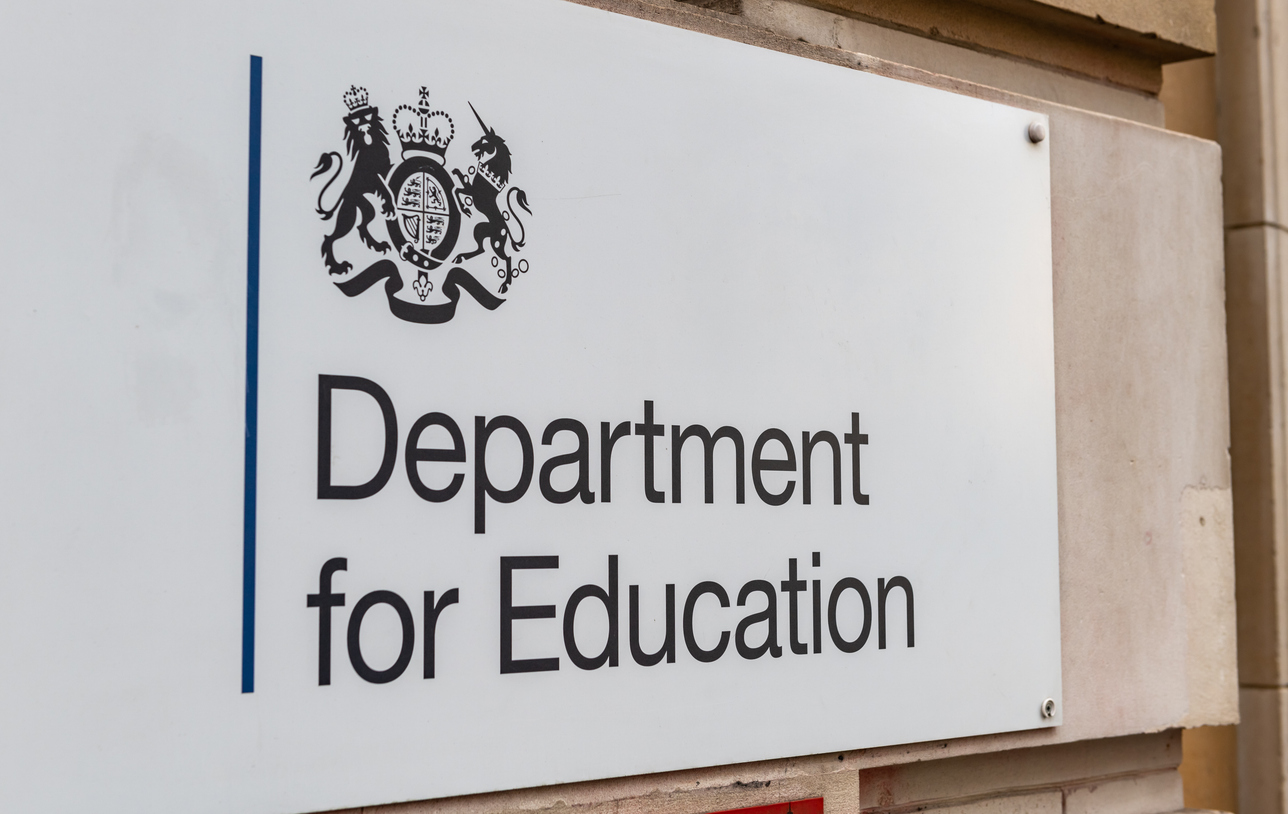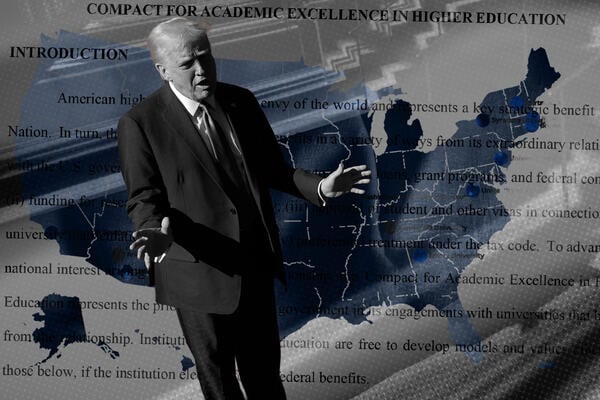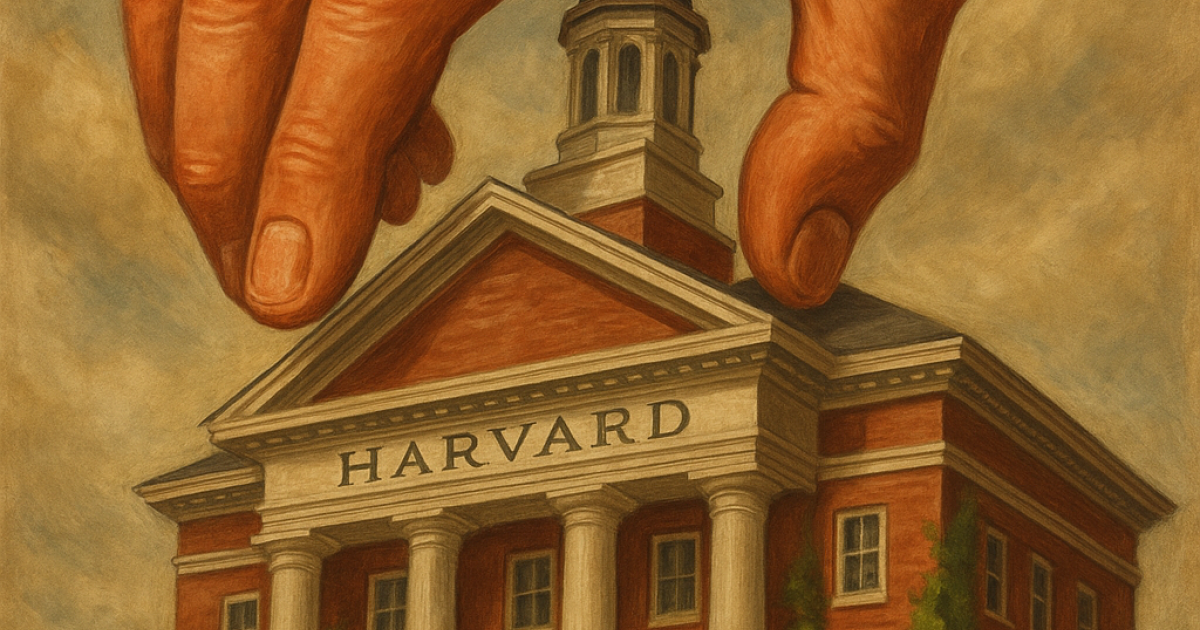This blog was kindly authored by Professor Roger Brown, the former Vice Chancellor of Southampton Solent University and Dr Helen Carasso, Honorary Norham Fellow of the Department of Education at the University of Oxford. Their previous book, Everything for Sale? The Marketisation of UK Higher Education was published by Routledge in 2013.
It is eighth blog in HEPI’s series responding to the post-16 education and skills white paper. You can find the others in the series here, here, here, here, here, here and here.
We need a reset to ensure the system can play its critical role in delivering provision aligned to the government’s growth and Industrial Strategy ambitions, support training at scale, deliver opportunity and outcomes for all, and reduce the persistent gaps in outcomes for the most advantaged students.
(HM Government, 2025, p.46).
As this statement of intent shows, the post-16 Education and Skills White Paper published last month has ambitious aims for the higher education sector in England. These are framed in the context of a wide range of proposals covering not only higher education but also further education and what used to be called ‘industrial training’. So far as higher education is concerned, the main proposals are:
- To promote greater provider specialisation, including through greater collaboration
- To increase financial sustainability and efficiency
- To improve access and participation
- To strengthen the incentives on providers to promote growth
- To improve quality
Specialisation and collaboration
The Government wants to see greater specialisation: ‘over time there will be fewer broad generalist providers and more specialists’ (p.49). The White Paper seems to envisage two types of specialisation (a) by broad orientation, ‘teaching only’, ‘research’ and ‘teaching with applied research in specific disciplines’ (p.49) and (b) by discipline ‘a provider may decide to specialise across multiple disciplines or to focus on one or two where they are strongest’ (p.49). It is not clear how this will be achieved, but the White Paper speaks of ‘incentivising a more strategic distribution of research activity across the sector’ (p.50). This would be done through reforms to research funding. There will be a more permissive approach to collaboration on the part of the regulators. The Government declares that it will work with the Office for Students ‘to ensure there is a more robust process for market entry’ (p.50) but nothing is said about market exit.
Financial sustainability and efficiency
The White Paper confirms the earlier announcement by the Secretary of State that the undergraduate tuition fee cap for all providers will be increased in line with forecast inflation in the academic years 2026-27 and 2027-28. These ad hoc increases are intended to support the financial sustainability of institutions until legislation can be put in place to make such increases automatic. The Government will work with the sector to improve research cost recovery, with measures including improvements to TRAC (Transparent Approach to Costing) and support for collaboration and sharing of infrastructure. The White Paper also notes the potential of AI for dramatic improvements in research productivity. However, future Government support for research will be tied to ‘three distinct priorities’:
Protecting and promoting curiosity-driven research; supporting the delivery of government priorities, missions and the Industrial Strategy; and providing targeted innovation, commercialisation and scale-up support to drive growth.
(p.50)
Moreover, improving cost recovery may ‘result in funding a lower volume of research [but] at a more sustainable level’ (p.52) and the research assessment system will be reformed ‘to better incentivise excellence and support the Government’s vision for the sector’ (p.53).
Improving access and participation
There are signs that the Government has registered the scale of the financial pressures on students with maintenance loans increasing with forecast inflation each year. Means-tested maintenance grants for students from the lowest income households (funded by the new International Student Levy) will be introduced. However these will be confined to those who are studying courses that support the Government’s missions and Industrial Strategy. The long-awaited introduction of modular teaching funding through the Lifelong Learning Entitlement (LLE) will also be focused on ‘key subjects for the economy, informed by the Industrial Strategy’ (p.56). However, given that the LLE model is to be used to operate loans for all eligible home undergraduates, it is unclear what this will mean in practice.
To reduce administrative burdens, the regulation of Access and Participation Plans will be refined to focus on those parts of the sector where there is the greatest room for improvement. The Government will ‘develop options to address cold spots in under-served regions and tackle the most systemic barriers to access’ (p.57). It will also explore the reasons for the declining proportion of UK doctoral applicants in some fields. This could include reducing the financial barriers for those from lower socio-economic backgrounds.
Incentives for growth
The Strategic Priorities Grant will be reformed so as to align with the priority sectors that support the Industrial Strategy, the Government’s Plan for Change and future skills needs. Providers will be expected to review their curricula to increase flexibility and strengthen progression. Student support (i.e. eligibility for SLC loans) for Level 6 courses may be made conditional on the inclusion of accredited break points in degree programmes. Universities will be required to engage with Local Skills Improvement Plans. There will be ‘a new market monitoring function, drawing together key datasets to provide a clear, single picture of higher education supply and demand’ (p.61).
The Government has protected the overall funding of UKRI (at £8.8bn). It will continue to ensure that there is ‘the right balance’ between the three research funding priorities. Some of UKRI’s funding will be ‘pivoted to align to areas of strategic importance as described in the Industrial Strategy sector plans’ (p. 62).
The country’s ‘global leaders’ will be placed on a more sustainable footing through the linking of fee cap increases to quality (as discussed below) and the projected improvements in research cost recovery. The Government will work with the sector ‘to maintain a welcoming environment for high-quality international students’ (p.63). However, there will be tighter enforcement of visa approvals and monitoring of international students’ course enrolments and completions. Finally, providers will be encouraged to develop ‘civic plans’ that fit with their strengths and priorities.
Improving quality
Even though three-quarters of providers received Gold or Silver ratings in the last (2023) TEF, ‘we need to raise the bar across the system…with pockets of poor provision undermining the reputation of the sector’ (p.64). On the REF, the White Paper acknowledges the risk that research funding and assessment frameworks can incentivise ‘perverse behaviours’ with publication becoming ‘the main aim’ (p.65) (why did it take them so long?).
There will be an increase in the OfS’s capacity to conduct ‘quality investigations’. Ultimately, the Government will legislate to ensure that the Office is able to impose recruitment limits where growth risks poor quality and future fee uplifts will become conditional on providers achieving a higher threshold through the Office’s quality regime.
The Government will work with UCAS, the OfS and the sector to improve the quality of information for individuals ‘informed by the best evidence on the factors that influence the choices people make as they consider their higher education options’(p.66). An OfS review of its approach to degree awarding powers will include the role of external examiners and ‘the extent to which recent patterns of improving grades can be explained by an erosion of standards, rather than improved teaching and assessment practices’ (p.67). Employers will be consulted on whether the academic system is giving graduates the skills and knowledge they need for the workplace (p.67). Using the model of Progress 8 in the schools, the Government will work with the OfS to develop options for measuring and comparing progress in higher education.
The Government will also consider its approach to research assessment ‘to ensure it meets our needs and ambition for research and innovation’ (p.68). There will be a pilot ‘to seek better information on how our strategic institutional research funding is used’ (p.68).
The White Paper in its historical context
In our forthcoming book Every Student Has Their Price: The Neoliberal Remaking of English Higher Education,to be published by Policy Press next year, we identify the progression of reforms that have enable the marketisation of English higher education. These reforms to funding, regulation and market entry have enabled a significant growth in the number of competing higher education providers to more than 400 (see the December 2023 HEPI Debate Paper Neoliberal or not? English higher education in recent years Roger Brown and Nick Hillman).
The White Paper vigorously reaffirms the official view, evident in the 1985 Green Paper The Development of Higher Education into the 1990s (Department for Education and Science, 1985) that the role of higher education is first and foremost about meeting the needs of the economy: what Salter and Tapper many years ago termed ‘the economic ideology of higher education’ (The State and Higher Education, 1994). But whereas most previous White Papers have at least paid lip service to the wider functions of higher education this one doesn’t even bother. It is, in fact, the most wide-ranging attempt yet to tie the future development of the sector to the Government’s perceptions of the present and future requirements of the economy, and specifically the presumed requirements of the labour market.
The White Paper’s impacts can be expected to mostly reinforce those of the earlier reforms in at least six areas: demand and equity, supply, funding, the higher education workforce and the system.
Demand and equity
The White Paper is silent on the future size of the sector. So far, the neoliberal reforms have done little to check the huge increases in numbers and participation rates that we have seen. Nor have they made much difference to the continuing gaps in participation by different social groups or the tendency for students from wealthier backgrounds to go to better-resourced institutions. This is because – as nearly every independent analysis has shown – the major barriers to wider participation lie much further back in the education system and these in turn largely reflect the structure of our society and economy. So it is very hard to see the White Paper proposals making much difference to access or demand. But there are one or two warning signs. The stipulation that maintenance grants will be restricted to students on courses closer to the Industrial Strategy will not only constrain student choice but perhaps also reinforce the divisions between higher and lower tariff providers that were exacerbated by the abolition of the numbers limits in 2015. Is there perhaps another potential binary line here, with better off students free to pay to study humanities and social science at wealthier and more prestigious institutions and go on to well-paid jobs in the City or the professions, while poorer students are obliged to study ‘practical and applied’ subjects at less well resourced and less prestigious ones?
Supply
It is striking that there are no proposals for expanding the number of providers, indeed the White Paper envisages toughening the rules for market entry, as we have seen. The Government appears to assume that it will be existing providers that will cater for the cold spots in under-served regions, rather than new ones. This will at least mean some greater stability.
Funding
It seems highly unlikely that the proposals for fee indexation will be sufficient to redress the post-2016 funding squeeze, wean universities off of their reliance on international student fees (even without the tax represented by the International Student Levy) or restore the unit of resource in real terms. UUK analysis suggests that there will be an overall £2.5bn reduction in sector funding across the academic years 2024-25 to 2026-27 compared to 2023-24. Whilst the intention to improve research cost recovery is welcome, it will almost certainly be insufficient to reverse the long-term decline in research funding since 1980, and indeed the Government partially accepts this.
This combination of some additional funding, together with a strong drive towards increasing efficiency and encouragement for institutions to consider specialisation, collaboration and restructuring as options, is placed within the context of recognition that ‘the higher education sector is rightly and proudly autonomous’(p.53). This freedom, the Government states, has its consequences, so ‘the leadership of the sector must take responsibility for managing their institutions robustly and in the public interest’ (p.53). The OfS will therefore be supported to tighten the management and governance requirements of institutional registration. Indeed, there will be a ‘….focus on targeting sharp regulation where it is most needed, to drive the positive change required to maintain our world-leading higher education system.’ (p48)
Quality
The White Paper notes some of the quality issues that have arisen over the period, including grade inflation and (some) sub-contracting (franchising), most of which are in fact due to the combination of increased competition and reduced funding that has characterised the period of the reforms. The proposal that future fee increases should be linked to quality raises as many questions as it answers. Whilst this idea has often been floated in the past, it has not been seriously applied in the UK since the days of the Polytechnics and Colleges Funding Council when sector committees advised the funding council on the allocation of additional funded student numbers to ‘deserving’ institutions on a broadly disciplinary basis.
The proposal that the OfS should be able to confine future fee uplifts to ‘providers achieving a higher quality threshold through the OfS’s quality regime’ is also par for the neoliberal course. The potential weight that this places on TEF outcomes makes the current review of the exercise even more crucial, including the importance of designing a process that acknowledges the role of a variety of institutions offering forms of education that might be different but not automatically ‘better’ or ‘worse’.
The proposal that the OfS should review the degree awarding powers process and the role of external examiners in protecting standards also raises many questions. But the issue is the same, namely, how and to what extent can the traditional ways in which the academic community has, generally, successfully guarded its standards resist the combined pressures of competition, consumerism and inadequate funding.
The proposals on information for students continue with the hopeless – in the authors’ view – quest for the Holy Grail of information that will quickly and cheaply enable students and other ‘users’ of the system to make reasonable choices about subjects, courses and providers, the insuperable difficulties of which were explained at length in the HEPI Debate Paper referred to earlier. Similarly hopeless is the idea of a progress measure for higher education along the lines of Progress 8 in the schools. We can only sympathise with the hapless individuals who will be tasked with taking these ideas forward.
The proposal to review research assessment raises concerns that future exercises could be tilted, like research funding, towards greater emphasis on (a) impact, and (b) subjects considered most relevant to the Industrial Strategy. Haven’t the reforms to increase the role of impact in research assessment over the years already gone far enough?
Staff
The White Paper breaks new ground in one respect at least, in that the position of staff, and in particular the precarity of many early career researchers, is mentioned. However, what will happen here will depend very much on how much of a financial recovery there will be (if any), on how much system restructuring takes place and on what form any increased collaboration takes. If this takes the form of institutional mergers, we can expect more redundancies and potentially worsening of terms and conditions. The experience of mergers in HE indicates that the only significant, permanent savings come from disposing of assets: any savings on things like shared services are offset by the greater costs of the managerial coordination required.
The system
The Government clearly hankers after a more streamlined system that is both more efficient in its use of resources and offers a wider, or at least clearer, set of choices for students, employers and other ‘users’. As with so many other aspects of the White Paper we have been here before. In the early 1980s the old University Grants Committee consulted on designating the existing universities as ‘R’, ‘X’ or ‘T’, depending on their research intensity. The proposals were universally rejected. In the early 2000s, HEFCE toyed with the notion of dividing institutions into separate and distinctive groups depending on their overall orientation, but this also foundered. The institutions were almost all strongly opposed, the criteria and data for selection were insufficiently robust to be a basis for policy and the Funding Council anyway lacked the necessary powers. The same seems likely to be the case here, especially given the renewed emphasis on institutional autonomy built into HERA(2017).
Where does the sector go next?
In our forthcoming book, we argue that the post-80s reforms of higher education in England are a reflection of the key planks of neoliberalism: privatisation, marketisation and reduced claims on the taxpayer. The press release accompanying the White Paper speaks of it being a ‘landmark statement’. This it certainly is, if not in the sense seemingly meant by its authors. If the essence of neoliberalism is the subordination of all social and cultural activities to the needs of the economy, then this is indeed a ‘landmark’ document of which the authors of neoliberalism would have been justly proud.






